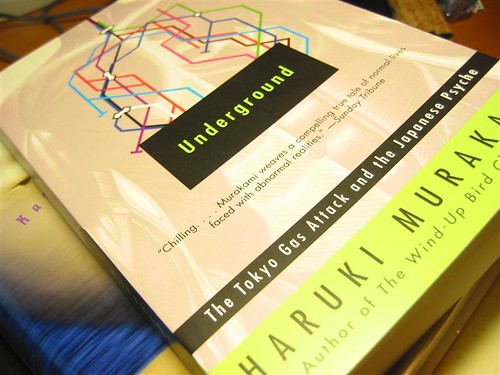 |
| Picture found on: Cedric Sam |
"Reality is created out of confusion and contradiction, and if you exclude those elements, you're no longer talking about reality. You might think that - by following language and a logic that appears consistent - you're able to exclude that aspect of reality, but it will always be lying in wait for you, ready to take revenge."
By now, you should all be familiar with my unhealthy obsession with novelist, Haruki Murakami. The story of Underground is another book I have added to my list. I do not usually stray into the genre of witness literature that often, simply because I find the issues too heavy and confronting, and therefore not an enjoyable read. (However, I do appreciate those who have an interest in reading witness testimonies on true events.)
Without going into too much detail, the Tokyo Gas Attack and Underground itself is, amongst other things, an attempt to understand the psychological effect of violence in an affluent, peaceful country. In many lucky parts of the world, we have become accustomed to safety. Wilful death is no longer a common occurrence. So when a mass murder is committed in such a place, this then has a strong social and personal impact on those involved - it shakes us out of our comfort zone and perception of harmony.
Murakami also attempts to focus attention on the 'Us vs Them' dichotomy. In his final essay, he looks towards people's immediate reactions to attack the perpetrators. And understandably, put as much distance between them and the event. This is a logical reaction but, as unfortunate as the gas attack was, more needed to be done than to simply say that one is a monster. And I suppose that is what Murakami tries to achieve in Underground. That everything happens within a context, and we are always part of that.
Cute post!
ReplyDeleteMuch love from the SABO SKIRT girls!
SHOP: http://www.saboskirt.com
BLOG: http://www.saboskirt.blogspot.com